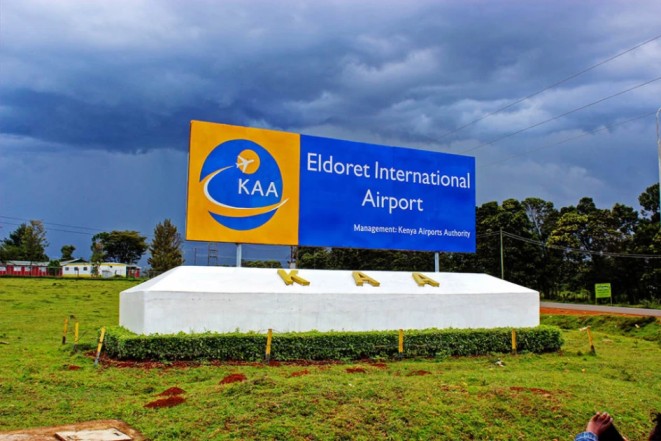Eldoret International Airport has recorded a notable rise in customs revenue for the 2024/2025 financial year, surpassing Kenya Revenue Authority (KRA) targets and signaling a strong recovery after a period of operational disruptions.
The airport collected Sh1.8 billion, beating the target of Sh1.694 billion by Sh109.06 million, or 6.44 percent.
The previous year had seen a sharp decline in collections after cargo flights were largely suspended for nearly eight months due to disagreements over a revised taxation system for consolidated shipments.
Traders initially resisted KRA’s move from a weight-based to a unit-based tax approach, leading to reduced import volumes. The challenges were compounded by periodic jet fuel shortages, slowing operations for clearing agents and cargo handlers.
Eldoret relies heavily on consolidated cargo, where small consignments from multiple importers are combined and shipped together, as a main source of revenue.
Currently, three to five active consolidators operate at the airport, handling about five cargo flights weekly. Ethiopian Airlines flies on Wednesdays and Fridays, Kenya Airways on Thursdays and Fridays, and private charter flights also carry goods.
Unlike larger hubs such as Jomo Kenyatta and Moi international airports, Eldoret mainly handles chartered cargo, which KRA prioritizes for clearance.
According to Abdi Malik Hussein, KRA’s chief manager for Customs and Border Control for the Rift Valley and North Rift Region, this system has shortened turnaround times for cargo processing.
“Every aircraft that arrives is given priority in handling and clearance. From offloading to scanning, verification, and release, the process takes an average of four to five hours,” Hussein said.
“In the 2024–2025 financial year, we did not have any consignment delayed or left overnight at the airport.”
Hussein credits the efficiency to close collaboration among multiple government agencies under a structured multi-agency framework. Participants include the Directorate of Criminal Investigations, National Police Service, National Intelligence Service, Kenya Bureau of Standards, Kenya Plant Health Inspectorate Service, and the Anti-Counterfeit Authority.
“Each agency is allowed to carry out its mandate without interference. This teamwork ensures that compliance is enforced, counterfeit goods are intercepted, and all taxes due to the government are paid,” he added.
Regular engagement with consolidators, clearing agents, and importers has also minimized errors in declarations and reduced cases of under-declaration or concealment.
“We conduct a lot of sensitisation and stakeholder engagement for both the consolidators and the clearing agencies, and, once in a while, also with the importers to ensure that they are able to address their declarations properly so that cases of under-declaration, cases of concealment are to the minimum,” Hussein said.
The positive trend has continued into the 2025/2026 fiscal year, with Sh567.08 million collected in the first quarter (July–September 2025) against a target of Sh458.64 million, setting a strong pace for the new year.
